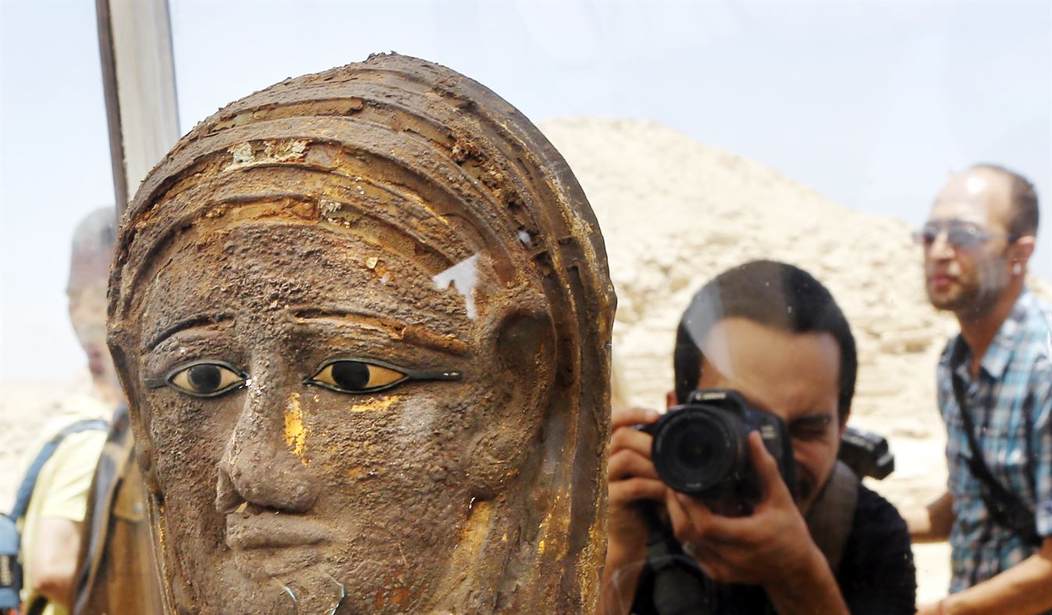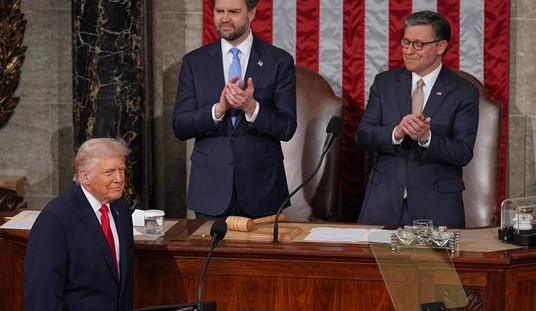(The opinions expressed by contributors are their own and do not necessarily represent the views of RedState.com.)
On our side of the Pond over here in America, the University of Southern California recently decided the word “field” was racist. The Brits are no strangers to woke insanity themselves, as the British Museum has now decided to no longer refer to wrapped-up long-dead ancient Egyptians as “mummies” because it might offend them—even though they’re no longer alive to be offended.
If you are a good and moral person, you should now refer to such a corpse as a “mummified person” or “mummified remains.”
Sometimes these stories are so indescribably stupid that you assume they’re not real, but sadly, changing the language and the meaning of everyday words is all the rage these days. I mean, who even knows what a “woman” is anymore?
This London primary school doesn’t seem to have received the memo:
Year 3 had an incredible time at @britishmuseum today learning about Ancient Egyptian mummies! pic.twitter.com/zd6aVNWCtR
— St. Edward’s Primary School (@StEdwards_sch) January 16, 2023
The National Museums Scotland in Edinburgh has also removed “mummy” from its, um… mummy exhibits. But why on earth would you feel the need to do such a thing? The Daily Mail reports:
A spokeswoman said: ‘Where we know the name of an individual we use that, otherwise we use “mummified man, woman, boy, girl or person” because we are referring to people, not objects.
‘The word “mummy” is not incorrect, but it is dehumanising, whereas using the term “mummified person” encourages our visitors to think of the individual.’
It’s hard to imagine that the individuals would actually be offended by someone calling them a mummy; after all, they’ve been dead for over 3,000 years. And it’s not as if the word is new; in fact, according to the Online Etymology Dictionary, it’s been in use in English since at least the 1600s:
mummy (n.1)
late 14c., mummie, “medicinal substance prepared from mummy tissue,” from Medieval Latin mumia, from Arabic mumiyah“embalmed body,” from Persian mumiya “asphalt,” from mum “wax.” Sense of “dead human body embalmed and dried after the manner of the ancient Egyptians” is recorded in English from 1610s.
As Twitter user Den the Boomer put it, “There’s a competition going on, isn’t there, where academics have to create increasingly ridiculous proposals without anyone calling them out for just playing the game. How else could you explain this nonsense.” Tweeter tractorgirly also makes a good point:
Anything sounding remotely feminine is being cancelled these days! 🤦♀️🤦♀️🤦♀️https://t.co/HBdLitYj6i
— 𝒯𝓇𝒶𝒸𝓉𝑜𝓇𝑔𝒾𝓇𝓁𝓎 🇬🇧🚜 💚🤍💜 (@tractorgirly) January 21, 2023
Museums are also (laughably) afraid of being associated with scary movies. “Legends about the mummy’s curse and movies portraying supernatural monsters… can undermine their humanity,” said Joanne Anderson of England’s Great Northern Museum.
But should we rename those movies, seeing as they’re hurting the feelings of the deceased? We could have, “The Mummified Remains Return,” or “Frankenstein vs. The Ancient Egyptian Who Identifies as a Person Who Underwent a Mummifaction Procedure.”
(Readers, see if you can come up with some of your own. In my article about USC wanting to rid the world of the word “field,” I wrote about how we could rename “Field of Dreams” as “Community/Local Office of Dreams.” Some of the reader comments were priceless.)
Stories like this are so silly and highlight how almost hysterical these pointless constant woke language changes are. However, there is a coordinated effort to change the meaning of so many words in our society, and it’s almost always in the name of some woke BS cause. We must continue to call it out and mock it relentlessly because it’s anything but benign.
If we don’t, someday we’ll get movies where action stars will yell, “curse you, Mummified Remain-X Person!”
Brendan Fraser should have already gotten an Oscar for the scene where the Mummy screams at him and he just screams back. pic.twitter.com/7kvHjdg9IK
— Ben Crew (@BenjaminCrew1) January 21, 2023
See also–>















Join the conversation as a VIP Member